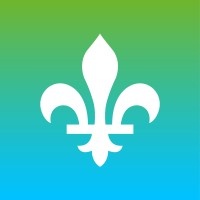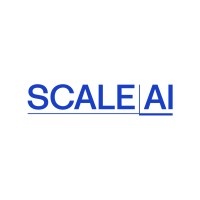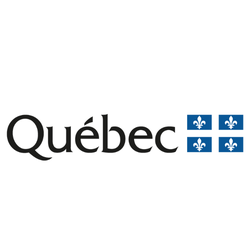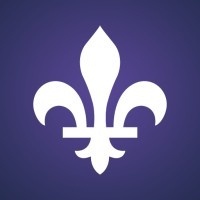
FAQDD — Reducing air and noise pollution – Component 1
At a glance
- Maximum amount : 500,000 $
- Up to 80% of project cost
- Open Date : June 4, 2025
- Closing date : September 19, 2025
- Manufacturing
- Transportation and warehousing
- Administrative and support, waste management and remediation services
- Quebec
- For-profit business
- All revenue ranges
- All organization sizes
- Indigenous Peoples
Overview
The Québec government's Program for the Reduction of Air and Noise Pollution (PRPAS) aims to support municipalities, Indigenous communities, and businesses in reducing air and noise pollution, offering up to $500,000 per project. Eligible activities include replacing existing equipment with more efficient models and projects that directly or indirectly enhance air quality or a favorable sound environment.
Activities funded
- Replacing existing equipment with newer, more efficient models to reduce atmospheric and noise emissions.
- Initiatives aimed at achieving a better air quality or more favorable sound environment.
Eligibility
- The applicant must be a business, municipal body, or an Indigenous community.
- The project must aim to replace existing equipment with new, more efficient equipment for improving air quality or reducing environmental noise.
- The project must demonstrate a direct positive effect on reducing emissions at the source, either by improving air quality or reducing external noise pollution.
- The project must be executed entirely within Quebec.
- The project must present a realistic and adequate budget regarding the planned activities.
Who is eligible?
The eligible applicants for the Program de réduction de la pollution atmosphérique et sonore (PRPAS) include:
- Enterprises: Businesses operating within Quebec can apply to receive financial support for projects aimed at reducing atmospheric and noise pollution.
- Municipal Organizations: Local government bodies within Quebec can apply for funding to support environmentally beneficial projects under the program.
- Indigenous Communities: Indigenous communities in Quebec are eligible to apply for funding to support pollution reduction efforts, with a higher percentage of admissible expenses covered compared to other applicants.
Eligible expenses
- Costs associated with the replacement of existing equipment with more efficient ones for atmospheric or noise pollution control.
Eligible geographic areas
- Quebec, Canada
How to apply
Awareness of the program's terms and conditions
- Download the Applicant's Guide to understand the program's terms.
- Schedule an appointment with an analyst to discuss your project.
Realization of the impact study
- Carry out a preliminary impact study for the project, justifying the replacement of the equipment.
- Include a presentation of the current situation and a description of the equipment to be installed.
- Quantify the avoided emissions.
Documentation of additional funding
- Include the confirmation letters for the additional funding.
- Make sure to confirm the public or private source of the funding.
Letter of waiver for tax credits
Filling out the application form
- Fill out the online financial aid application form.
- Make sure the form is signed by the authorized signer with the appropriate evidence.
- Submit the form via the "Submit Form" button before the deadline.
Additional information
The grant for reducing air pollution and excessive noise offers financial support for projects aiming to enhance environmental quality across Quebec. It focuses on replacing less efficient equipment and supporting initiatives to improve air quality or the acoustic environment.
- The grant application deadline for the first call of Volet 1 is December 8, 2024, by midnight.
- Eligible projects must be completed by February 28, 2027.
- A final report and supporting documents must be submitted 60 days post-completion, no later than March 31, 2027.
- The financial aid is limited to a maximum of $500,000 per project.
- The aid covers up to 50% of eligible expenses for companies and municipalities, and 80% for Indigenous communities.
Contacts
Frequently Asked Questions about the FAQDD — Reducing air and noise pollution – Component 1 Program
What is the FAQDD — Reducing air and noise pollution – Component 1?
How much funding can be received?
What is the deadline to apply?
Who is eligible for the FAQDD — Reducing air and noise pollution – Component 1 program?
What expenses are eligible under FAQDD — Reducing air and noise pollution – Component 1?
Who can I contact for more information about the FAQDD — Reducing air and noise pollution – Component 1?
Where is the FAQDD — Reducing air and noise pollution – Component 1 available?
More programs like this

PSCE – Component 2
Investissement Québec (IQ)
MAPAQ — Food Processing Program — Component 2
Ministry of Agriculture, Fisheries and Food (MAPAQ)
SCALE AI — Acceleration
Scale AI Cluster
Research, Innovation and Commercialization Tax Credit (CRIC)
Gouvernement du Québec
Support for biofood exports - individual projects
Ministry of Agriculture, Fisheries and Food (MAPAQ)
ÉcoPerformance — Recommissioning of building mechanical systems
Gouvernement du Québec
Individual Market Access Support (SIAM)
Aliments du Québec
Panorama Program
Investissement Québec (IQ)
Financing to respond to the offensive of new tariffs and for initiatives for resilient and exporting companies (FRONTIERE)
Investissement Québec (IQ)